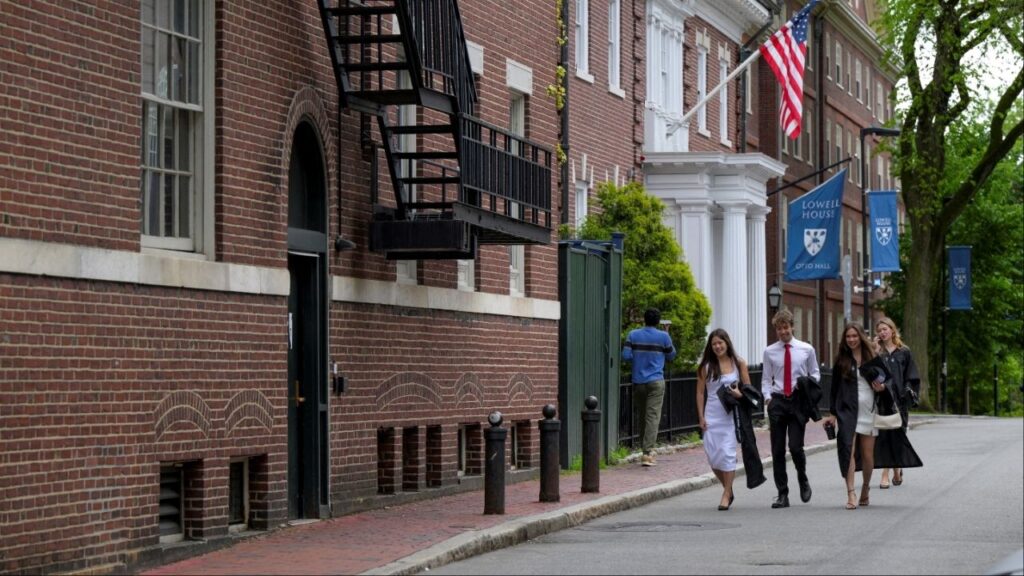As President Trump pounds the nail of MAGA resentment and envy into elite research universities, Americans best hope that science prevails. (Shutterstock)

- If science has a center of gravity it is in the greater Boston area.
- Of all the institutions there, no place has drawn President Donald Trump’s ire quite like Harvard.
- The danger is that Trump's cutoff of research funding likely will abort scientific and medical advances.
Share
|
Getting your Trinity Audio player ready...
|
Science sometimes advances not by design but by happenstance. Thirty years ago a graduate student in chemical engineering at the Massachusetts Institute of Technology was describing a bottleneck in his work over drinks at a bar in Cambridge, Massachusetts. A Harvard student heard and suggested a solution using microchip manufacturing technology that his lab had recently developed. The casual exchange led to a collaboration under the guidance of Donald Ingber, a Harvard cell biologist, that eventually helped pioneer organ-chip technology—lab-grown models of human organs on tiny chips. Dr. Ingber would go on to found a biotech firm in Boston that commercialized the technology.
The story’s arc is very Boston: federally funded academic research and serendipitous encounters among brainiacs spawning innovation and biotech firms. If science has a center of gravity it is along the Charles River, which snakes between Boston and Cambridge, where MIT, Harvard, world-class hospitals and venture-capital firms all share a riverbank. Yet that same concentration of science makes the area vulnerable to politics. President Donald Trump’s policies on universities and his administration’s proposed cuts to science funding threaten not only Massachusetts’s sprawling research and biotech ecosystem, but also the country’s competitive edge in innovation.
For 17 of the past 19 years universities and hospitals in Boston have received more funding from the National Institutes of Health than those anywhere else. Roughly one in eight of America’s top 40 research universities call the Boston area home. Of all these institutions no place has drawn Mr. Trump’s ire quite like Harvard. Just hours after Harvard’s president refused to comply with federal demands to restructure the university, Dr. Ingber was among the first of its scientists to receive a stop-work order on his grants. Then, on May 5, Linda McMahon, the education secretary, sent a rambling letter to Harvard with an extraordinary threat: the university will no longer receive any new federal research grants.
Like a keystone species, Harvard supports research and development far beyond its campus; unsettle Harvard, and the effects will be felt widely.
Its federal grants often depend on collaborations among universities and hospitals across the region. Among the economies of America’s 20 largest metro areas, none has a greater share dedicated to the sciences and related industries. This patch of land is home to more biotech firms than anywhere else in the world.
The University of Massachusetts medical center, 40 miles west of Cambridge, is a juggernaut in RNA research, a field that underpins some of the most promising therapeutic advances. UMass has already paused PhD admissions and laid off employees at its biomedical-sciences institute. “What science has in common with business is that we don’t do well with uncertainty in our external environment,” says Phillip Zamore, a biologist who heads the university’s RNA Therapeutics Institute. “We can handle uncertainty in an explanation for nature, but it’s terrifying to think ‘how am I going to pay my postdoc?’ ” he adds. Most of his graduate students go into biotech.
Some consequences will be harder to measure. Biotech and pharmaceutical firms rely on a stream of discoveries from federally funded university labs doing open-ended research. Much of this research initially has no obvious commercial use. But the more federal money flows into university labs, the greater the chance that scientists will stumble upon discoveries that industry can turn into the next life-saving drug. Sekar Kathiresan, the head of the Boston-based biotech firm Verve Therapeutics, expects to spend $2 billion developing a drug that could treat heart disease, which is the leading cause of death in the world. “The technology we’re using to turn off a cholesterol-raising gene in the liver to lead to lifelong cholesterol-lowering”, he says, was made possible by scientists at the Broad Institute in Cambridge who invented base editing in 2016. “Generous federal funding for science is critical for the next generation of ideas and cures,” he adds.
With the fight raging most fiercely inside Massachusetts, the state has in many ways led the resistance to Mr. Trump’s funding cuts and woo-woo approach to science. Since February the state’s attorney-general has filed two lawsuits against cuts to NIH funding. Others have joined both suits. Harvard, too, is pushing back in court. As one of the most progressive places in the country, Massachusetts is anathema to Trumpism, notes Michael Goldman, a longtime Democratic operative in the state. “But the British couldn’t break Boston, the New York Yankees couldn’t break Boston and neither can Trump,” he says. It is not just Bostonians who should hope he’s right.
Copyright © The Economist Newspaper Limited, 2025
RELATED TOPICS:
Germany Threatens Steps Against Israel as Tone Shifts Over Gaza
2 days ago
US Supreme Court Rejects Case About Student’s ‘There Are Only Two Genders’ T-Shirt
2 days ago
US Consumer Confidence Improves in May, Tariffs Anxiety Lingers
2 days ago
Fresno’s Crime Beat Didn’t Prepare Me for What I Saw on a Ride Along
2 days ago
NPR Sues Trump Administration Over Executive Order to Cut Funding
2 days ago
Tulare County Authorities Search for Man Missing in Tule River
2 days ago
Far-Right Israelis Confront Palestinians, Other Israelis in Chaotic Jerusalem March
2 days ago
Man Shot While Driving in Visalia, Police Investigating
2 days ago
Visalia Man Found Hiding in Closet After Fleeing Crash Scene
2 days ago
FBI Announces New Probes Into Dobbs Supreme Court Leak, White House Cocaine Incident
2 days ago
Categories

FBI Announces New Probes Into Dobbs Supreme Court Leak, White House Cocaine Incident

Ecstasy and Bribery Accusations in Sean ‘Diddy’ Combs Trial Bolster Racketeering Charge

Germany Threatens Steps Against Israel as Tone Shifts Over Gaza

US Supreme Court Rejects Case About Student’s ‘There Are Only Two Genders’ T-Shirt

US Consumer Confidence Improves in May, Tariffs Anxiety Lingers

Fresno’s Crime Beat Didn’t Prepare Me for What I Saw on a Ride Along












